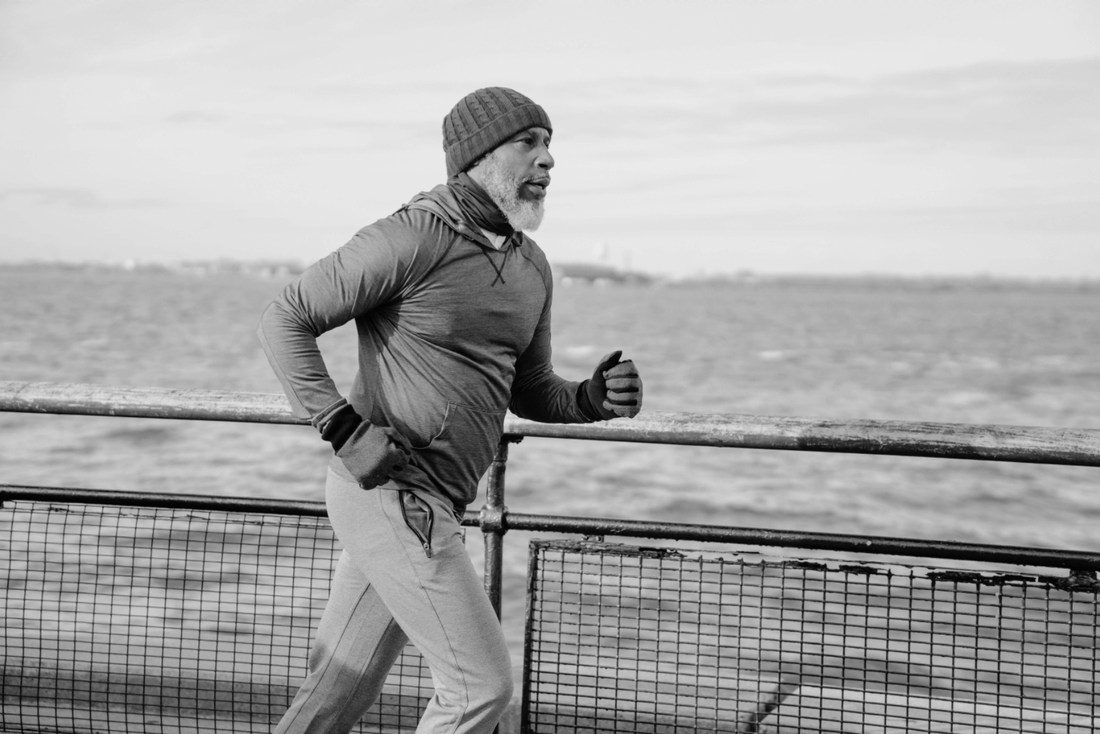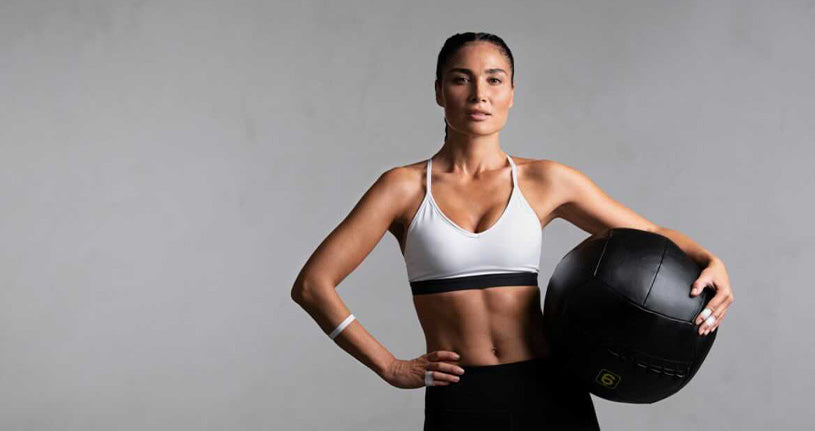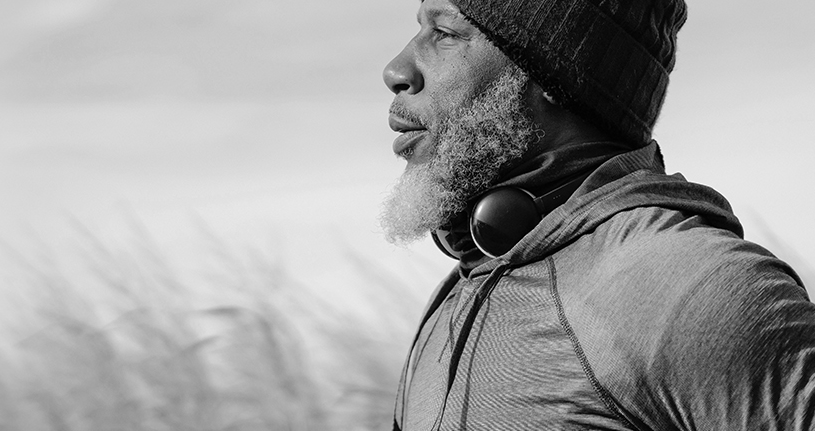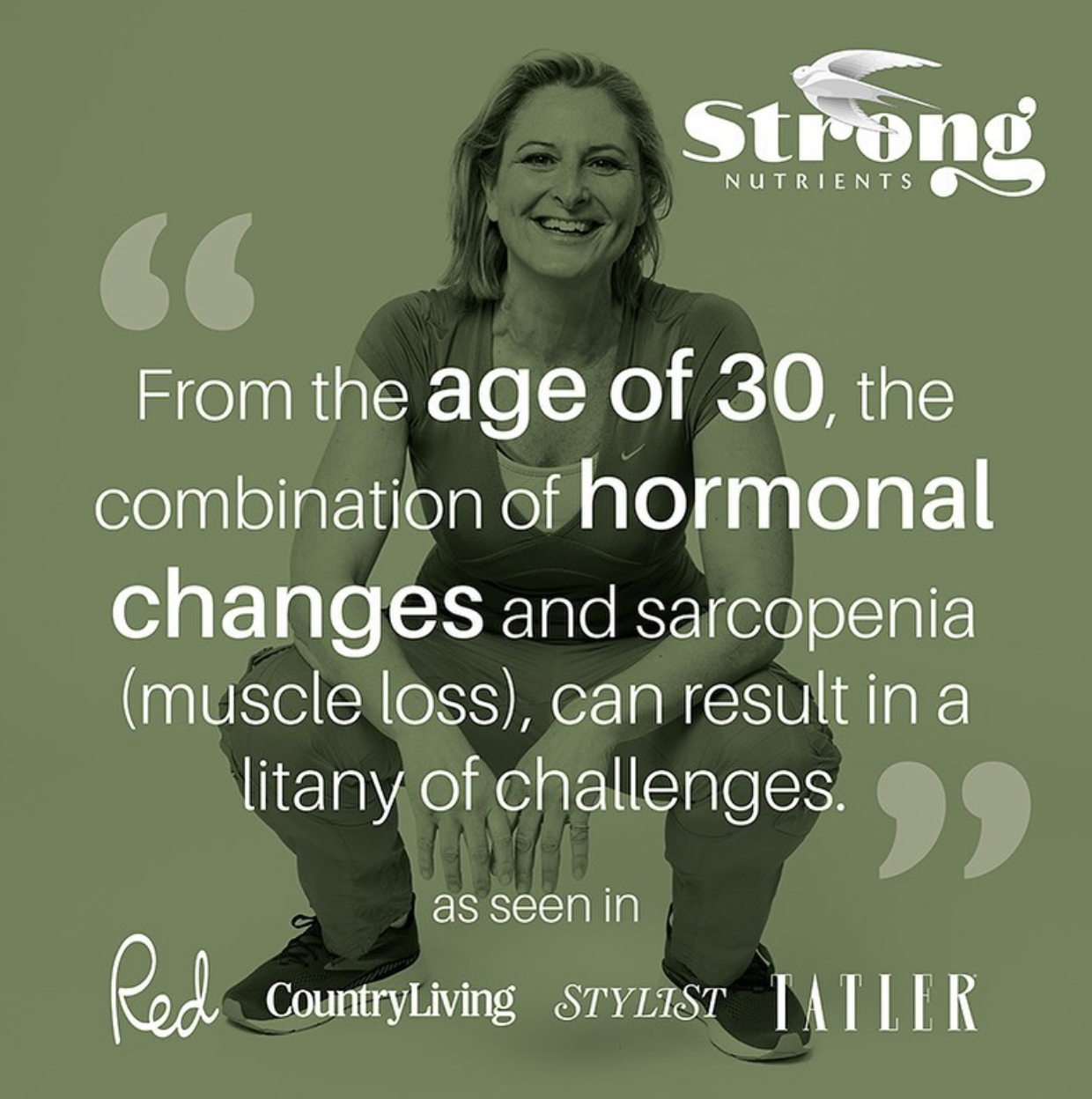How to support yourself through the menopause
As a rather big and broad arena, I’ve done my best to simplify this menopause and peri-menopause conversation into a few key points that in my experience (primarily professional, but also on occasion personal!) will best support you (your body and possibly your mind) through this time, avoiding or at the very least reducing, the lesser enjoyable “side effects” and as importantly, allowing you to feel genuinely better and stronger than you ever before: that’s what to focus on. We hear it time and time again: once women come to terms with the menopause and learn how to manage menopausal symptoms, some women eventually feel the best they’ve ever felt.
According to the NHS you go through the menopause when you stop having your periods due to the drop in some hormonal levels. Peri-menopause is the time prior to the menopause, when your hormones begin to change and you begin experiencing mood swings, brain fog, hot flushes and anxiety and your periods become more irregular. (The menopause most often happens between the ages of 45-55 but can happen earlier, due to reasons that include hysterectomy, oophorectomy, oncology treatments or genetic disposition.)
However, as with many things in life and our bodies, we can’t neatly chop and slice, separating one area such as the menopause, from another. I personally (and professionally) believe it is best viewed as simply one part of a constant journey, and we gravitate from one phase such as peri-menopause into menopause, not a single point but rather an extended period that happen over 10 years. This peri-menopause/menopause phase of our lives is not clean cut “on/off switch”, it’s more a constant state of gentle flux occurring from our late 30s, with factors such as high levels of stress, alcohol, caffeine or even Covid and its vaccinations, reportedly result in symptoms that can ebb and flow over this extended period of time. (I’ve had countless clients of “menopausal age” lose their periods due to one of these factors, only for clients to begin their periods again, anything from 3 to 8 months later.)
So on this basis, the question becomes how best to support ourselves from our late 30s onwards, during which time our bodies experience numerous changes, not simply the loss of our periods, but hormonal shifts that can affect the flexibility of the joints, muscle strength, insulin resistance (resulting in fat gain around the middle), loss of energy, or brain fog and mood balance.
So here are a few basic, but in my experience, essential keys. As far as I can tell, there’s no short cut, no easy way out, no alternative. It doesn’t mean having to live or act like a saint, and you can still enjoy life with as much gusto as ever, but it does mean certain principles, certainly in my 30 years of experience working with women to increase their strength, can’t be ignored.
1. It’s hard to emphasise enough the importance of the correct exercise and nutrition as we age. Training – do any sport you like but never forget functional resistance exercise. Give every muscle a chance to be strong so your body and joints stay balanced, flexible and supported. My favourites due to the hormonal impact of the menopause and its resulting effect on muscle, are weight training and short high intensity training, however Pilates, barre and yoga all go under the bracket of functional too.
2.Please do not overtrain. This is a huge issue that can increase cortisol, exhaust your adrenal system, and result in muscle loss – all of which will not only effect your mood, stamina, energy and drive, but also directly impact your hormones.
3. Nutrition – both the obvious but also the basic. It’s always important to stay close to nature, picking grass-fed over grain, organic and local, and choosing wild over farmed. We all know the value of our greens, nuts and pulses, however understanding the basic principles of nutrition, especially in terms of the roles of fats, carbohydrates and protein is never more important than during menopause.
Simply, we cannot make hormones without fat (cholesterol) and amino acids, i.e. protein. All the greens in the world won’t get this job done. Now more than ever, it may be worth considering the importance of protein foods such as fish or meat, cheese or eggs, as well as fats, whether from olive oil and avocados or simply good quality butter. You don’t need to go on a strict keto plan, however it really is worth considering where fats and protein are, or could be placed, in your nutritional regime.
Supplements really can come in on their own here, and with are so many options on the market, many (not all) of which do have genuine value, the simplest I can do is offer my personal top 3 “must-haves” and further 2 “very helpful” supplements, during this stage in life, from 40 onwards.
My Must-haves:
Magnesium – I take a citrate form (Magnesium Rocks) – 400 mg per night. Many find 200mg works – however personally if I go lower than 400mg, I will often get occasional muscle cramps or more restless sleep. Magnesium is involved with the breakdown of old, unused oestrogen, as well as the production of melatonin, the reduction of cortisol. Additionally, magnesium is important for addition to muscle and nerve functioning (relaxation!), as well as the production of ATP (aka our energy molecules including those used by our brain). In short, especially during the menopause, Magnesium seems to have a supporting effect on hormonal balance, helping with the reduction and elimination of night sweats, as well as decreasing muscle cramps and also having a direct impact on sleep and energy, as well as mental alertness.
Chill Pill – vitamin B5. Chill Pill supports our adrenals, which in turn produce over 40% of our steroid hormones (oestrogen, progesterone and testosterone) and protect our bodies from stress. The challenge with the peri-menopause and menopause years, is that they tend to coincide with some of the busiest years of our lives. From children to high-powered jobs, parents increasing in years and social lives that don’t necessarily slow down – and all this was all before we add in three years of Covid hanging over our lives. In short, most clients I meet are already suffering from what we popularly call adrenal fatigue, with sleep interrupted, mood effected, and energy low. Separating menopausal symptoms from those of adrenals simply not doing their job as effectively as they should, can become difficult.
My recommendation is to take Chill Pills every day, either with food or before bed (particularly helpful for sleep) to wake up feeling calmer and happier, in short – more you.
Pure Creatine – an essential component of ATP – those little energy molecules which are essential for stamina and power with training, as well as brain functioning, as our brains rely more on ATP as oestrogen levels drop during this time. 1 teaspoon of Pure Creatine every day in water or tea/coffee (warm, not too hot), will boost your stamina considerably.
The Very Helpful Ones:
Antarctic Krill Oil – is a potent source of EPA & DHA oils and I find it superb for joints, skin and mood, all of which can take a hammering during menopause. I take 4 every day. I particularly love Antarctic Krill because these little capsules contain naturally occurring astaxanthin, a very potent, protective antioxidant that also prevents the oil form going rancid, which can often occur with fish oil supplements – so you will never have a fishy aftertaste.
Amino Slim – Amino Slim capsules or Amino Slim powder support the loss of stubborn belly fat, which is always insulin related. The drop in oestrogen during peri-menopause and menopause seems to result in our bodies becoming more insulin resistant, and by supporting the body’s natural hormonal balance at night or during high intensity exercise, this little supplement seems to accelerate the fat loss especially around the belly area – as we sleep!
So yes, the peri-menopause and menopause are a rather big and broad arena, spanning at least a decade for most of us, if not two decades. During this time, rather than face the peri-menopause and menopause as a long-term challenge to be endured, making a number of small changes to our daily routines can give us an unprecedented capacity to understand our bodies, and how we work, resulting in a change to become stronger than ever, mentally and physically.






